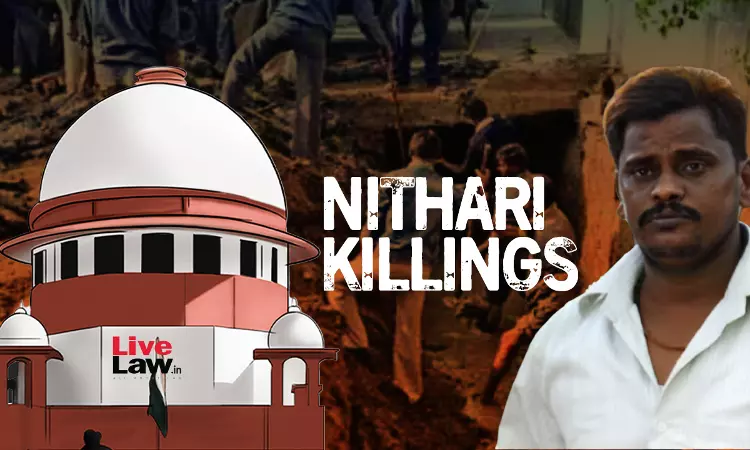Nithari Killings | Supreme Court Issues Notice On CBI's Pleas Challenging Acquittal Of Accused Surendra Koli
Debby Jain
8 July 2024 12:02 PM IST

Next Story
8 July 2024 12:02 PM IST
The Supreme Court today issued notice on CBI's pleas challenging acquittal of Surendra Koli, one of the accused in Noida serial murder cases of 2005-2006 (Nithari Kand).A bench of Justices BR Gavai and KV Viswanathan passed the order, on hearing Solicitor General Tushar Mehta, who argued that Koli was a serial killer who used to lure young girls and kill them. Calling the killings "gruesome",...
